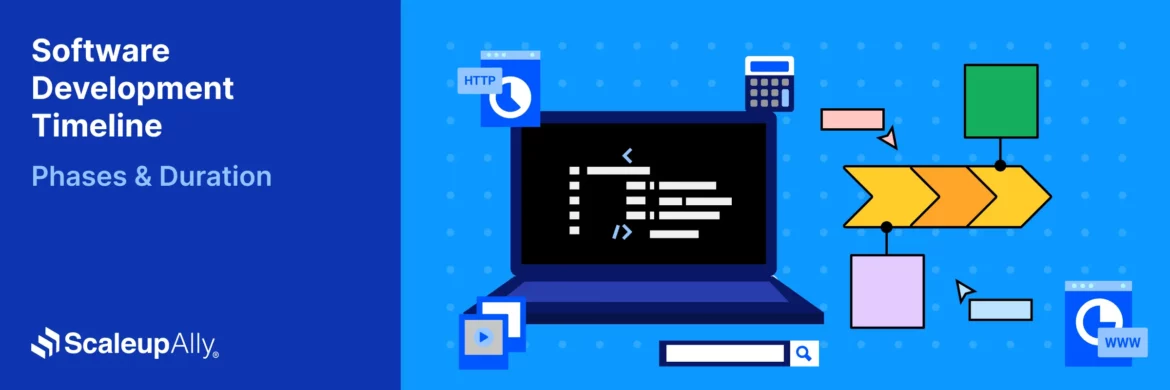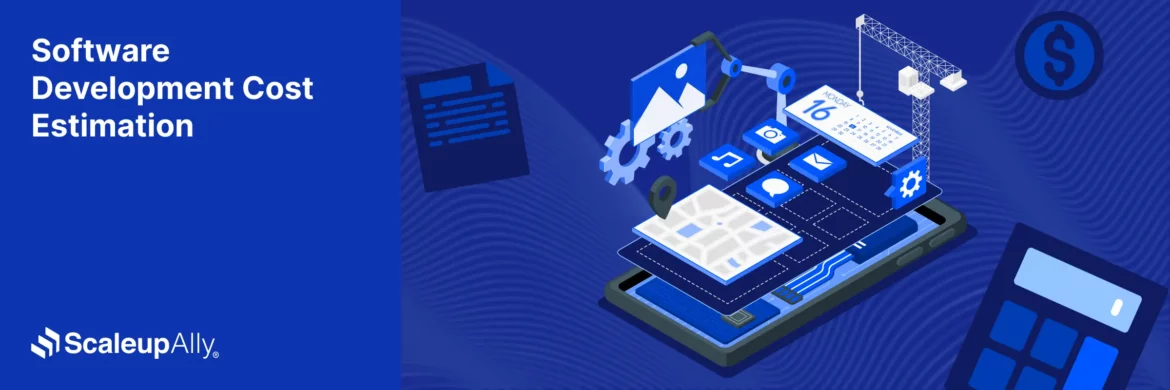
Power Apps vs. Mendix: A Head-to-Head Comparison
Suprabhat Sen | February 21, 2024 , 9 min read
Table Of Content
Two of the most popular low-code platforms on the market today are Power Apps and Mendix. While both platforms offer similar features, they have distinct differences that can make one more suitable for a particular business than the other.
In this article, we will provide a head-to-head comparison of Power Apps and Mendix, highlighting their strengths and weaknesses to help you decide which platform is right for your business.
Key Takeaways
- Mendix excels in building highly scalable, enterprise-grade applications with advanced customization and flexibility for complex workflows.
- Power Apps offers cost-effective, rapid app development with seamless integration into the Microsoft ecosystem, ideal for simpler projects.
- Both platforms significantly reduce development time compared to traditional coding, enabling faster deployment of business solutions.
- Choosing the right platform depends on project complexity, budget considerations, and the level of integration required with existing systems.
- Evaluate long-term support, community resources, and ecosystem compatibility to ensure sustained performance and future-proof application development.
Power Apps vs Mendix: Differences at a glance
The following comparison briefly gives an overview of the key differences between Power Apps and Mendix. Evaluate your specific requirements and consider platform support, extensibility, and cost when choosing between the two platforms.
| Parameter | Mendix | Power App |
| Type of platform | Low-code | Not completely low-code |
| Supported Platforms | Web, mobile (iOS, Android), desktop | Web, mobile (iOS, Android), Microsoft Teams |
| Rapid for | Enterprise app development, business process automation | Rapid app development, integration with Microsoft 365 |
| Utility | Development of complex, enterprise-grade applications | Quick development of simple to medium-complexity apps |
| Extensibility | Extensive customization and extensibility, support for custom widgets and modules | Limited customization and extensibility compared to traditional development |
| Cost | Higher cost, especially for large enterprise projects. (Free to USD 850+) | Lower cost, especially for small to medium-sized projects. (USD 20/month for Premium) |
What is Power Apps?
Power Apps is a suite of low-code and no-code development tools offered by Microsoft that allows users to create custom business applications quickly and easily. With Power Apps, users can create apps for web and mobile devices without the need for extensive coding knowledge.
The platform provides a visual development environment where users can drag and drop components to design the user interface and define app functionality.
Power Apps integrates seamlessly with other Microsoft services, such as Microsoft 365 and Dynamics 365, allowing users to access and manipulate data from these services in their apps.
Pros of Power Apps
Power Apps offers several advantages that make it a popular choice for building custom business applications. Some of the key pros of Power Apps include:
1. Low-Code Development
Power Apps is designed for users with little to no coding experience, allowing them to create applications using a visual drag-and-drop interface. This makes app development more accessible to a wider range of users.
2. Rapid Development
Power Apps allows for quick development and deployment of applications, reducing the time to market for new solutions. This can be particularly useful for businesses looking to quickly address changing needs or opportunities.
3. Integration with Microsoft Services
Power Apps integrates seamlessly with other Microsoft services, such as Microsoft 365, SharePoint, and Azure, allowing users to leverage data and functionality from these services in their applications.
Cons of Power Apps
While Power Apps offers many advantages, there are also some drawbacks. Some of the key cons of Power Apps include:
1. Limited Customization
While Power Apps allows for some customization, users may find it limiting compared to traditional coding methods. Customization options may not always meet the specific needs of more complex or unique applications.
2. Complexity for Advanced Functionality
While Power Apps is designed to be user-friendly, This is where working with a Power Apps development company helps, as they can handle complex scenarios, integrations, and advanced workflows. Users may need to invest time in learning how to use Power Apps effectively for complex scenarios.
3. Dependency on Microsoft Ecosystem
Power Apps is tightly integrated with the Microsoft ecosystem, which means that users may be limited in their choice of data sources and services. Integrating with non-Microsoft services may require additional effort and custom development.
What is Mendix?
Mendix is a low-code application development platform that enables businesses to quickly build, integrate, and deploy custom applications. It provides a visual development environment that allows users to create applications using drag-and-drop components and model-driven logic, reducing the need for traditional coding.
Pros of Mendix
Mendix offers several advantages, making it a popular choice for businesses looking to accelerate their application development efforts. Some of the key pros of Mendix include:
1. Low-Code Development
Mendix is a low-code platform that allows users to build applications with minimal coding. This makes app development more accessible to a wider range of users, including those with limited programming experience.
2. Rapid Development
Mendix enables rapid development of applications, reducing time to market and allowing businesses to quickly respond to changing market conditions and customer needs.
3. Integration and Connectivity
Mendix provides seamless integration with various systems and data sources, enabling users to leverage existing data and functionality in their applications.
Cons of Medix
While Mendix offers many advantages, there are also some drawbacks to consider. Some of the key cons of Mendix include:
1. Cost
Mendix can be expensive, especially for larger organizations or projects that require additional features or customization. The cost of Mendix licenses and services can add up, particularly for organizations with limited budgets.
2. Learning Curve
While Mendix is designed to be user-friendly, there can still be a learning curve for users new to the platform or to low-code development in general. Training and support may be required to help users get up to speed with Mendix.
3. Dependency on the Mendix Platform
Mendix applications are built on the Mendix platform, meaning users depend on Mendix for ongoing support and updates. If Mendix were to experience downtime or other issues, it could impact the availability of Mendix applications.
Mendix vs Power Apps: Head-to-Head Comparison
Let’s look closer into two prominent low-code platforms: Mendix and Power Apps. Here’s a breakdown of key factors to consider when selecting the most suitable platform.
1. Ease of Use and Deployment
Both Mendix and Power Apps are user-friendly and easy to deploy. Power Apps boasts a slightly better UI/UX, but Mendix is also straightforward in its deployment. Overall, both platforms excel in user-friendliness.
2. Performance
Mendix offers fast, flexible, and rapid development capabilities, whereas Power Apps can sometimes feel sluggish and require improvement. Mendix has a slight performance edge over Power Apps. However, using MS Power Apps may necessitate assistance from dedicated developers, unlike Mendix, which is a pure low-code platform requiring only basic technical knowledge.
3. Cost Considerations
Mendix tends to be pricier compared to other web application development platforms. However, the free version provides a glimpse into the package, albeit with several features missing from the basic plan. MS Power Apps offers different licensing options within Microsoft 365, enabling you to explore the low-code offering without significant upfront investment. In terms of cost, Power Apps offers more flexibility and affordability.
4. Technical Support and Services
With a market share of 0.07% to 0.15%, Mendix’s developer community is relatively limited. You can benefit from Mendix’s resource community, which offers various online resources and best practices. On the other hand, being a Microsoft product, MS Power Apps enjoys a satisfactory level of online and community support. In this regard, Power Apps has a slight edge over Mendix.
5. Customization Capabilities
Mendix stands out for highly customizable and scalable enterprise systems. It is an excellent choice for building tailor-made, enterprise-level web applications. Mendix’s array of features allows skilled developers to create compelling web applications and expand their capacity to utilize third-party tools.
On the other hand, MS Power Apps has certain limitations regarding customization capabilities. It is ideal for leveraging other Microsoft integrations but may not be suitable for expanding your capacity to utilize third-party tools.
Conclusion
When choosing between Mendix and Power Apps, the decision should be based on your business’s specific requirements, technical knowledge, and the level of complexity and integration you want in your application.
Although both platforms have advantages, Mendix is more suitable for large enterprises needing a comprehensive, scalable, and customizable solution. On the other hand, if you’re a business looking for a simple and quick solution within the Microsoft ecosystem, then Power Apps is the ideal choice.
Frequently Asked Questions (FAQs)
Q: Who can use Mendix?
Mendix is designed for many users, including developers, business analysts, and citizen developers, who want to build applications with minimal coding.
Q: Can Mendix applications be deployed on-premises?
Yes, Mendix applications can be deployed on-premises, in the cloud, or in a hybrid environment, depending on the organization’s needs.
Q: Can Power Apps applications be deployed on mobile devices?
Yes, Power Apps applications can be deployed on mobile devices running iOS and Android, on the web and in Microsoft Teams.
Similar Comparison Articles Around PowerApps
Related Blogs

Top 20 Emerging Technologies of 2026
Discover the top 20 emerging technologies of 2026. Explore which innovations are driving change across healthcare, finance, manufacturing, and other crucial industries.
ScaleupAlly Team
Dec 16 ,
9 min read

Software Development Timeline: Phases, Duration & Estimation Guide
Understand the software development timeline with phase durations, key factors, hidden delays, and practical methods to estimate project time.
Suprabhat Sen
Nov 29 ,
16 min read

Software Development Cost Estimation Guide: What’s Included & What Affects the Price
Explore software development cost components, major pricing factors, and practical estimation methods to plan your project accurately from start to finish.
Suprabhat Sen
Nov 29 ,
14 min read


